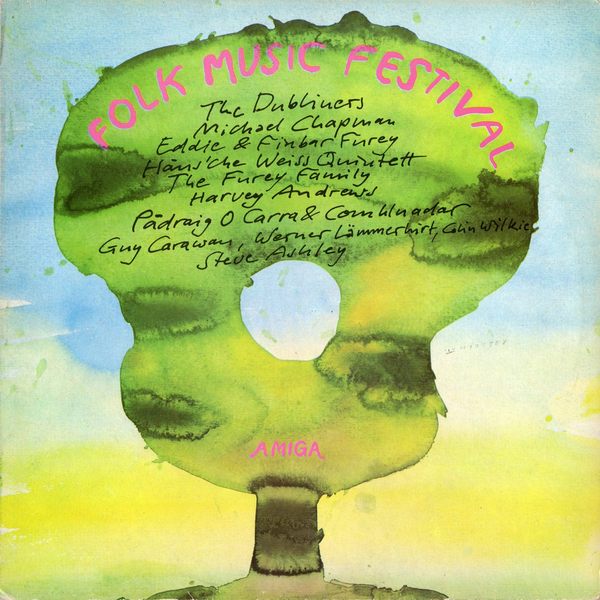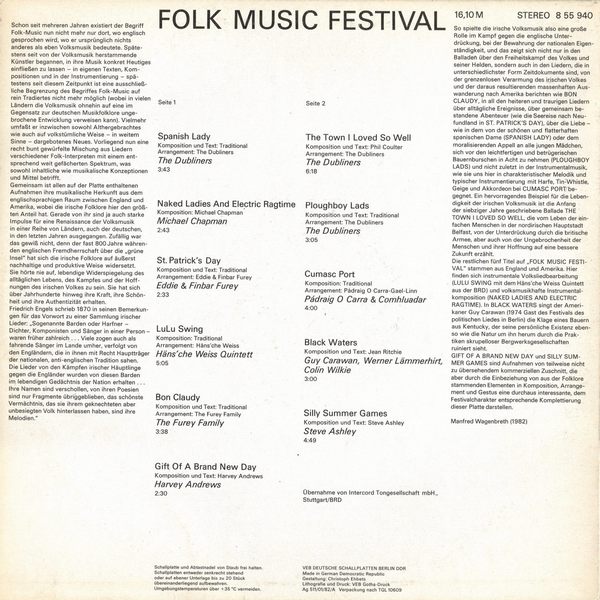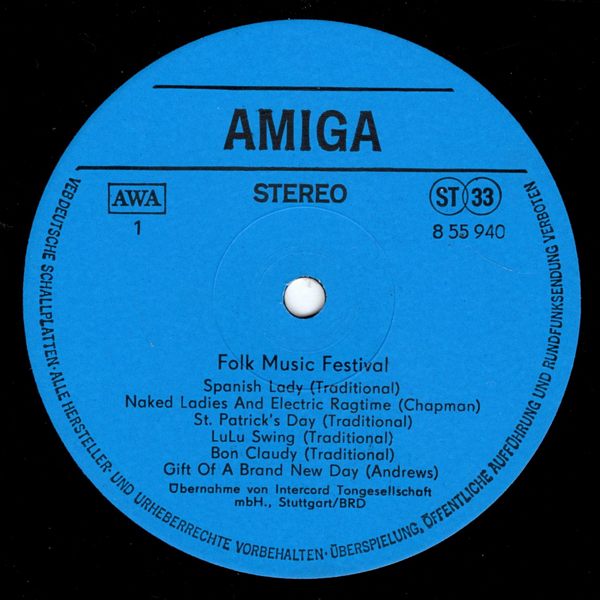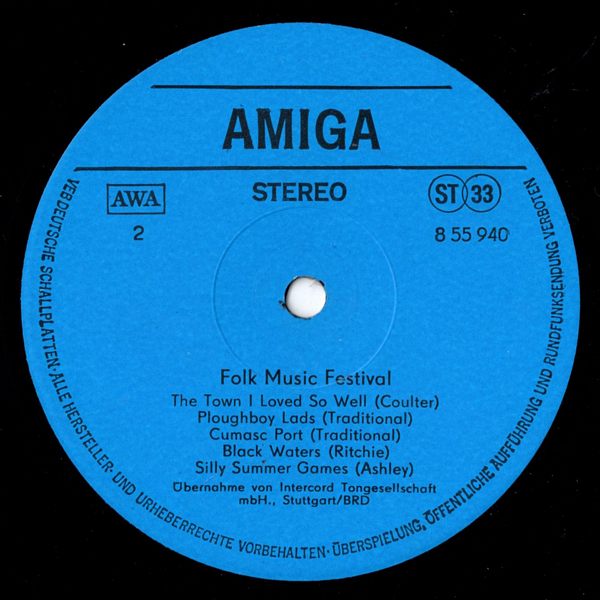
 |



|
Sleeve Notes
For several years now, the term folk music no longer only exists where English is spoken, where it originally meant nothing more than folk music. At the latest since artists originating from folk music began to incorporate something concretely contemporary into their music — in their own texts, compositions and in the instrumentation — at the latest since this point in time it is no longer possible to limit the term folk music to purely traditional things (although in in many countries folk music can refer to an uninterrupted development in contrast to German musical folklore). Rather, it now includes both the traditional and the new in a popular way — in a broader sense. What we have here is a rather motley mixture of songs by various folk interpreters with a correspondingly wide spectrum in terms of both content and musical concepts and means.
What all of the recordings on the record have in common is their musical origin from the English-speaking area between England and America, with Irish folklore having the largest share here. It is precisely from her that strong impulses have emanated for a renaissance of folk music in a number of countries, including Germany, in recent years. This was certainly no coincidence, for Irish folklore resisted the almost 800-year-old English foreign rule over the "Emerald Isle" in an extremely sustained and productive manner.
It never ceased to be a living reflection of the everyday life, struggles and aspirations of the Irish people. It has retained its power, its beauty and its authenticity over the centuries.
Friedrich Engels wrote in 1870 in his notes for the preface to a collection of Irish songs: "So-called bards or harpers — poets, composers, and singers in one person — were formerly numerous … Many also went about the country as itinerant singers, pursued by the English, who rightly saw them as the main bearers of the national, anti-English tradition.
The songs of the battles of Irish chiefs against the English were preserved by these bards in the nation's living memory … Their names are lost, but fragments remain of their poetry, the finest legacy they bequeathed to their downtrodden but undefeated people, are their melodies."
So Irish folk music played a major role in the fight against English oppression, in the preservation of national independence, and this is reflected not only in the ballads about the freedom struggle of the people and their heroes, but also in the songs, which are written in a wide variety of Form are contemporary documents, like BON CLAUDY report on the boundless impoverishment of the Irish people and the resulting mass emigration to America, in all the happy and sad songs about everyday events, about adventures we had together (like the sea voyage to Newfoundland in ST. PATRICK'S DAY), about love — as in that of the beautiful and flighty Spanish lady (SPANISH LADY), or the moralizing appeal to all young girls to beware of the frivolous and deceitful peasant boys (PLOUGHBOY LADS), and last but not least in the instrumental music, as we see here in characteristic melody and typical instruments met with harp, tin-whistle, violin and accordion at CUMASC PORT. An excellent example of the vitality of Irish folk music is the ballad THE TOWN I LOVED SO WELL, written in the early 1970s, which tells of the life of ordinary people in the Northern Irish capital of Belfast, of the oppression by the British army, but also of the integrity of the people and their hope for a better future.
The remaining five titles on "FOLK MUSIC FESTIVAL" come from England and America. Here you will find instrumental folk song arrangements (LULU SWING with the Häns'che Weiss Quintet from Germany), and folk music-like instrumental compositions (NAKED LADIES AND ELECTRIC RAGTIME),. In BLACK WATERS sings the American Guy Carawan (1974 guest of the festival of political song in Berlin), the complaint of a farmer from Kentucky, who sees his personal existence as well as the nature around him ruined by the practices of unscrupulous mining companies.
GIFT OF A BRAND NEW DAY and SILLY SUMMER GAMES are recordings of a commercial nature that cannot be overlooked, but which, through the inclusion of elements from folklore in composition, arrangement and gesture, represent a thoroughly interesting completion of this record that corresponds to the festival character.
Manfred Wagenbreth (1982)
Original German translated via Google Translate.